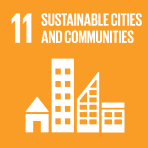- Home
- Books
- Self-made cities
- Chapter
Policy principles and guidelines

- Author: United Nations
- Main Title: Self-made cities , pp 89-101
- Publication Date: October 2013
- DOI: https://doi.org/10.18356/c8919515-en
- Language: English Russian
In general, the problems of informal settlements in countries in transition have not been systematically addressed and responsibilities remain fragmented. Informal settlements and residents have often been neglected in the broader urban and social development practices. Some communities in informal settlements have opted for self-organization, these initiatives being often backed up by the media, local governments, international organizations and NGOs. While these cases may be limited, the process of self-organization has had many positive outcomes. Currently, however, there is a global call for urgent yet sustainable interventions for informal settlements. Governments are translating relevant global strategies into specific national contexts. Higher-level government is increasingly seen as a key enabler of change with respect to informal settlements. There is also a commitment to ensure equal access to basic human rights as well as fairness in wealth redistribution and poverty reduction. Public-private partnerships are often at the centre of decisionmaking. A strong tendency towards mobilizing local skills and knowledge can also be noted.
© United Nations
ISBN (PDF):
9789210543477
Book DOI:
https://doi.org/10.18356/b38f6f47-en
Related Subject(s):
Human Settlements and Urban Issues
Sustainable Development Goals:
-
From This Site
/content/books/9789210543477c010dcterms_title,dcterms_subject,pub_keyword-contentType:Journal -contentType:Contributor -contentType:Concept -contentType:Institution105
/content/books/9789210543477c010
dcterms_title,dcterms_subject,pub_keyword
-contentType:Journal -contentType:Contributor -contentType:Concept -contentType:Institution
10
5

